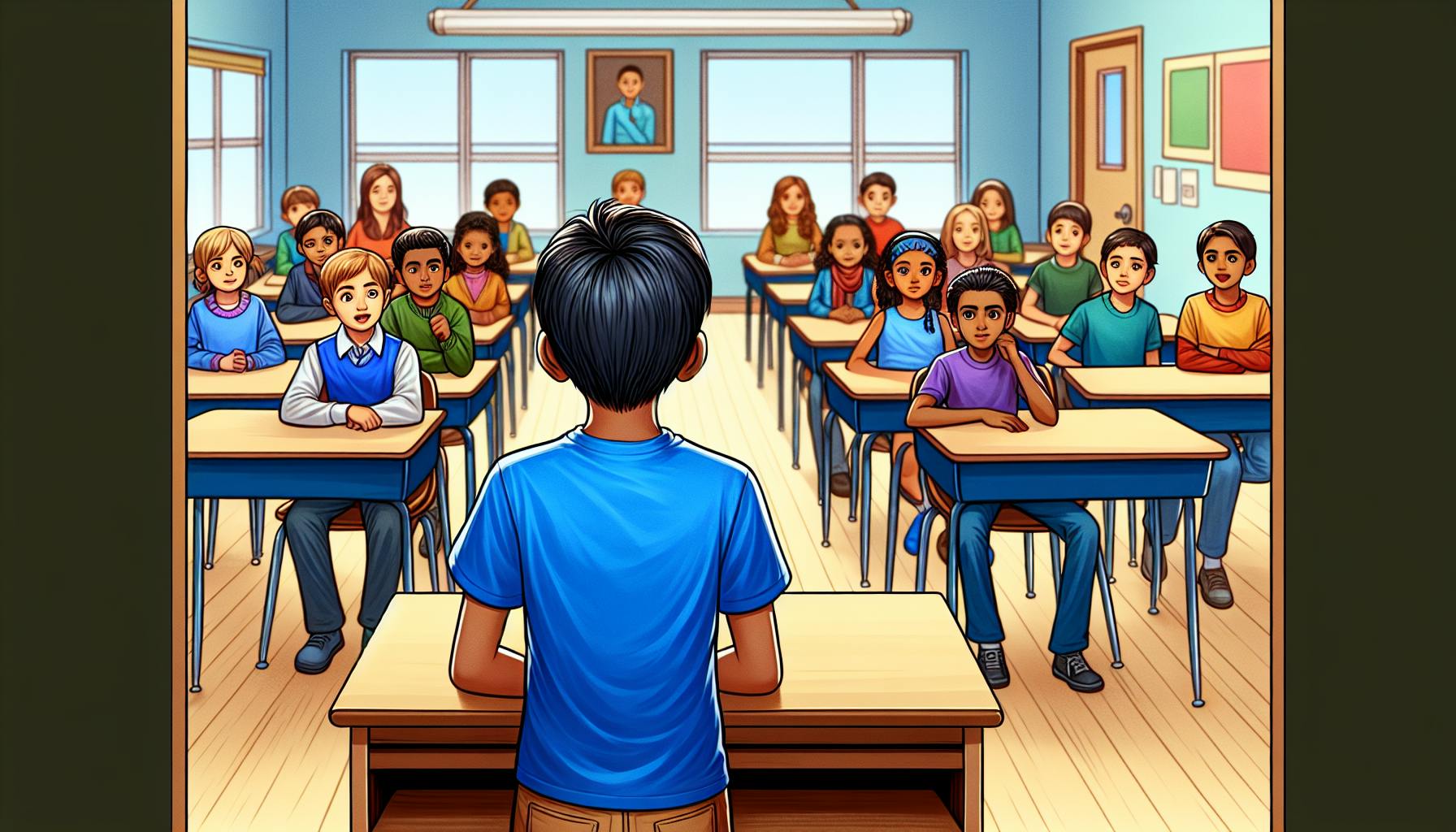Introduction to French Pronunciation
Why Pronunciation Matters
Learning French? Nailing the pronunciation is key. It’s not just about sounding fancy; it’s about being understood. Imagine trying to order a croissant and getting a confused look instead. Proper pronunciation helps you avoid those awkward moments and makes you sound more natural.
French has some sounds that English speakers might find tricky. But don’t worry, with a bit of practice, you’ll get the hang of it. Plus, good pronunciation helps you catch what others are saying, making conversations smoother.
Perks of Getting French Pronunciation Right
Getting French pronunciation down pat comes with some sweet perks for everyone, young or old. Here’s why it’s worth the effort:
- Better Communication: Speak clearly and folks will get what you’re saying.
- Boosted Confidence: Knowing you sound good makes you more eager to chat.
- Sharper Listening: Recognizing French sounds helps you understand spoken French better.
- Cultural Vibes: Pronouncing words correctly lets you connect more with French culture.
Focusing on pronunciation can really kick your French learning up a notch. Whether you’re gearing up for a trip or just love the language, getting those sounds right is a must.
| Perk | What It Means |
|---|---|
| Better Communication | Clear speech that’s easy to understand |
| Boosted Confidence | More willing to speak up |
| Sharper Listening | Easier to follow conversations |
| Cultural Vibes | More meaningful interactions with French culture |
Start with the basics like vowels and consonants. With some practice and the right tools, you’ll be chatting away in French in no time. Check out our French language apps and courses for more help. Let’s make this journey fun and rewarding!
Basics of French Sounds
Getting the hang of French sounds is a big step towards speaking the language like a pro. Let’s break down the vowels and consonants in French to build a solid foundation in pronunciation.
Vowels in French
French vowels can be a bit tricky compared to English ones. They include both oral and nasal sounds. Here’s a list of the French vowels with examples to help you get the hang of their pronunciation:
| Vowel | Example | Pronunciation |
|---|---|---|
| A | “chat” (cat) | [a] like ‘father’ |
| E | “été” (summer) | [e] like ‘play’ |
| I | “fille” (girl) | [i] like ‘see’ |
| O | “eau” (water) | [o] like ‘go’ |
| U | “lune” (moon) | [y] like ‘tu’ |
| É | “café” (coffee) | [e] like ‘hey’ |
| È/Ê | “mère” (mother) | [ɛ] like ‘bed’ |
| Œ | “sœur” (sister) | [ø] like ‘sir’ |
Nasal vowels are a unique twist in French pronunciation. They happen when the sound comes out through your nose, giving it a special ring.
| Nasal Vowel | Example | Pronunciation |
|---|---|---|
| AN/AM/EN/EM | “enfant” (child) | [ɑ̃] like ‘song’ |
| ON/OM | “bon” (good) | [ɔ̃] like ‘long’ |
| IN/IM/AIN/EIN/UN/UM | “pain” (bread) | [ɛ̃] like ‘rang’ |
Want to dive deeper into these sounds? Check out our article on French language courses.
Consonants in French
French consonants can also be a bit different from English ones. Here’s a quick rundown of the main French consonants and how to say them:
| Consonant | Example | Pronunciation |
|---|---|---|
| B | “bonjour” (hello) | [b] like ‘bat’ |
| C | “cinéma” (cinema) | [s] before ‘e’ or ‘i’, [k] elsewhere |
| D | “dîner” (dinner) | [d] like ‘dog’ |
| F | “fleur” (flower) | [f] like ‘fun’ |
| G | “gare” (station) | [g] before ‘a’, ‘o’, ‘u’; [ʒ] before ‘e’, ‘i’ |
| H | “hôtel” (hotel) | Silent |
| J | “jamais” (never) | [ʒ] like ‘treasure’ |
| L | “lait” (milk) | [l] like ‘lamp’ |
| M | “mère” (mother) | [m] like ‘man’ |
| N | “neuf” (nine) | [n] like ‘net’ |
| P | “pain” (bread) | [p] like ‘pen’ |
| Q | “quatre” (four) | [k] like ‘kite’ |
| R | “rouge” (red) | [ʁ] guttural sound at the back of the throat |
| S | “soleil” (sun) | [s] like ‘see’ |
| T | “table” (table) | [t] like ‘top’ |
| V | “vin” (wine) | [v] like ‘van’ |
| W | “wagon” (wagon) | [v] or [w] depending on the word |
| X | “taxi” (taxi) | [ks] or [gz] depending on the word |
| Z | “zéro” (zero) | [z] like ‘zoo’ |
Getting these sounds down will really help on your French language learning adventure. For more practice, check out some French language apps to sharpen your pronunciation skills.
Common Pronunciation Challenges
Learning French pronunciation can be a fun ride, but it’s got its bumps. Let’s tackle these common hiccups together and make your French sound magnifique!
Silent Letters
French loves its silent letters. Unlike English, French often includes letters that you see but don’t hear. These sneaky letters can pop up at the end of words or even in the middle.
- Silent ‘e’: Often chilling at the end of words (like “parle”), it usually stays quiet unless it’s needed to keep a vowel sound going.
- Silent ‘h’: In French, ‘h’ is almost always on mute. For example, in “hôtel,” the ‘h’ is a ghost.
- Silent ‘s’: Often found at the end of words (like “français”), it’s usually silent.
| Letter | Examples | Pronunciation |
|---|---|---|
| e | parle, danse | parl, dans |
| h | hôtel, heure | ôtel, eure |
| s | français, tous | français, tou |
Nasal Sounds
Nasal sounds are a hallmark of French pronunciation and can be tricky for English speakers. These sounds happen when air flows through your nose while saying certain vowels.
- an, am, en, em: These combos create a nasal sound like “ɑ̃” in French. Example: “enfant” (child).
- on, om: These make a nasal sound like “ɔ̃”. Example: “nom” (name).
- in, im, ain, aim: These produce a nasal sound similar to “ɛ̃”. Example: “vin” (wine).
| Nasal Sound | Examples | Pronunciation |
|---|---|---|
| ɑ̃ | enfant, ambre, temps | ɑ̃fɑ̃, ɑ̃br, tɑ̃ |
| ɔ̃ | nom, long | nɔ̃, lɔ̃ |
| ɛ̃ | vin, simple, pain | vɛ̃, sɛ̃pl, pɛ̃ |
Accents and Stress
Accents and stress can change the way French words sound. French uses several accents to tweak the sound of vowels and sometimes consonants.
- Acute Accent (é): Makes the ‘e’ sound like ‘ay’ in “café”.
- Grave Accent (è, à, ù): Changes the ‘e’ to sound like ‘eh’ in “chèvre”.
- Circumflex (â, ê, î, ô, û): Often shows a historical ‘s’ that’s been dropped (like “forêt” used to be “forest”).
- Cedilla (ç): Turns the ‘c’ into a soft ‘s’ sound (like “garçon”).
In French, stress usually lands on the last syllable of the word. This is different from English, where stress can jump around.
| Accent | Example | Pronunciation |
|---|---|---|
| é | café | kah-fay |
| è | chèvre | shev-ruh |
| ê | forêt | fo-ray |
| ç | garçon | gar-sohn |
Getting a handle on these pronunciation quirks can boost your confidence in speaking French. For more tips and resources, check out our articles on French language learning and French language courses.
Nailing French Pronunciation
Getting the hang of French pronunciation might seem tricky at first, but with the right tricks and tools, it can be a fun and rewarding experience for everyone. Let’s jump into some practical tips and resources to help us sound more like native French speakers.
Practice Tips
- Listen and Mimic: Start by listening to native French speakers and try to copy their pronunciation. This helps us get used to the sounds, rhythm, and flow of the language. Watching French movies or jamming to French tunes can make this part of our daily routine.
- Sound Drills: Focus on practicing specific sounds, especially the tough ones like nasal vowels and silent letters. Repeating these sounds alone and then in words will boost our confidence.
- Record Yourself: Record your pronunciation and play it back to compare with native speakers. This helps spot areas for improvement and track progress over time.
- Mouth Workouts: French pronunciation often needs different mouth movements than English. Practice exercises that work on tongue, lip, and jaw movements to better articulate French sounds.
- Chat Practice: Engage in conversations with native speakers or fellow learners. Real-life practice helps apply what we’ve learned and get feedback on our pronunciation.
Handy Resources
To help us master French pronunciation, we can use a variety of resources. Here are some useful tools to consider:
| Resource Type | Description |
|---|---|
| Online Courses | Structured lessons that teach French pronunciation step-by-step. Many courses offer interactive exercises and quizzes. Check out options on our French language courses page. |
| Language Learning Apps | Apps that provide pronunciation practice through audio clips, speech recognition, and interactive exercises. See our recommendations on French language apps. |
| Audio Books | Listening to French audio books can improve pronunciation and comprehension. Mimic the narrator’s pronunciation to enhance your skills. |
| Pronunciation Guides | Detailed guides that explain the nuances of French pronunciation, including vowel and consonant sounds, stress, and intonation. These can be found online or in language learning books. |
| Language Exchange Platforms | Websites that connect us with native French speakers for language exchange. Practicing with a partner can provide valuable feedback and boost our confidence. |
| Music and Podcasts | French songs and podcasts are enjoyable ways to immerse ourselves in the language. Singing along to songs or repeating phrases from podcasts can improve our pronunciation. |
By mixing these tips and resources into our learning routine, we can make big strides in mastering French pronunciation. For more info on learning French as a family, visit our French language learning page.
Fun Pronunciation Activities for Families
Learning French pronunciation can be a blast when you turn it into a family game night. Here are some fun ways to practice together.
Tongue Twisters
Tongue twisters are a great way to sharpen your pronunciation skills. They push you to pronounce sounds clearly and quickly, which can boost your overall speaking ability. Try these French tongue twisters:
| French Tongue Twister | English Translation |
|---|---|
| Les chaussettes de l’archiduchesse sont-elles sèches ou archi-sèches? | Are the archduchess’s socks dry or very dry? |
| Un chasseur sachant chasser doit savoir chasser sans son chien. | A hunter who knows how to hunt must know how to hunt without his dog. |
| Je veux et j’exige des excuses. | I want and demand apologies. |
Take turns saying these tongue twisters and see who can say them the fastest without tripping up. For more tips on learning French as a family, visit our French language learning page.
Pronunciation Games
Games can make French pronunciation practice a lot more fun. Here are some ideas:
- Pronunciation Bingo: Make a bingo card with tricky French words. Call out the words, and the first person to complete a row wins.
- Sound Matching: Write different French sounds on flashcards. Mix them up and have family members match the sounds to words containing those sounds. This helps with identifying and practicing specific pronunciations.
- Charades with a Twist: Act out French words or phrases while others guess what they are. This game not only improves pronunciation but also helps with vocabulary.
- Memory Game: Create pairs of cards with French words and their phonetic spellings. Shuffle and lay them face down. Players take turns flipping two cards to find matching pairs.
These activities can turn learning French pronunciation into a fun family project. For more resources, check out our articles on French language courses and French language apps.
Learning French as a Family: A Fun Adventure
Picking up a new language together can be a blast for families. By diving into French, we can create a supportive vibe that helps everyone grow and celebrate their wins.
Cheering Each Other On
Starting our French journey means having each other’s backs. Here’s how we can keep the good vibes rolling:
- Daily Practice: Spend a few minutes each day practicing together. Little and often is the key to nailing those tricky sounds and words.
- Positive Vibes: Celebrate the small stuff. Give a high-five when someone nails a tough word or phrase.
- Fun Group Activities: Dive into fun stuff like pronunciation games or tongue twisters. These make learning fun and take the pressure off.
- Gentle Corrections: Help each other out with kind corrections. Remember, mistakes are just steps to getting better.
Celebrating Wins
Keeping the excitement alive means celebrating our progress. Here’s how we can keep the motivation high:
- Milestone Treats: Set goals and reward ourselves when we hit them. It could be a family movie night or a special snack.
- Show Off Skills: Have a ‘French Day’ where we show off what we’ve learned. This could be speaking, singing, or even acting in French.
- Track Progress: Use a chart to keep track of our journey. Seeing our progress can be super motivating.
| Milestone | Reward |
|---|---|
| Mastering Vowels | Family Movie Night |
| Understanding Silent Letters | Special Dessert |
| Completing a Tongue Twister | Extra Playtime |
By cheering each other on and celebrating our wins, learning French can be a fun and rewarding adventure. Check out more about French language learning and explore other French courses to help us on our way.



